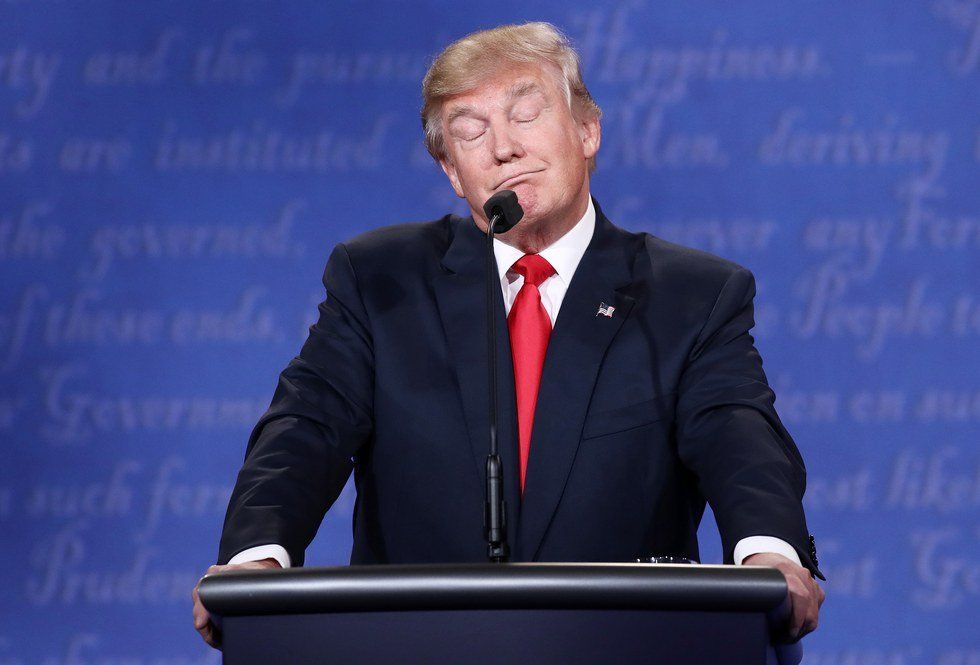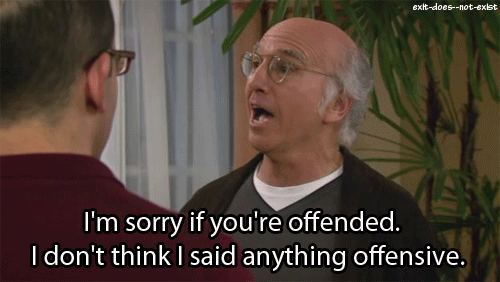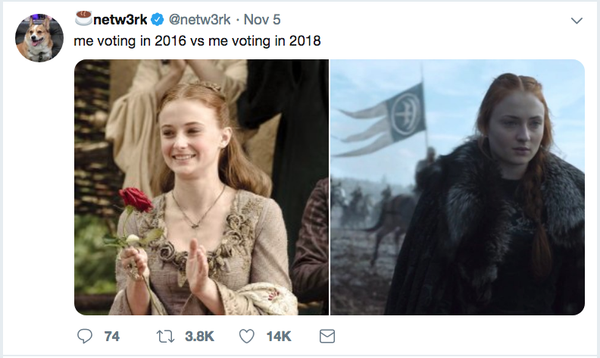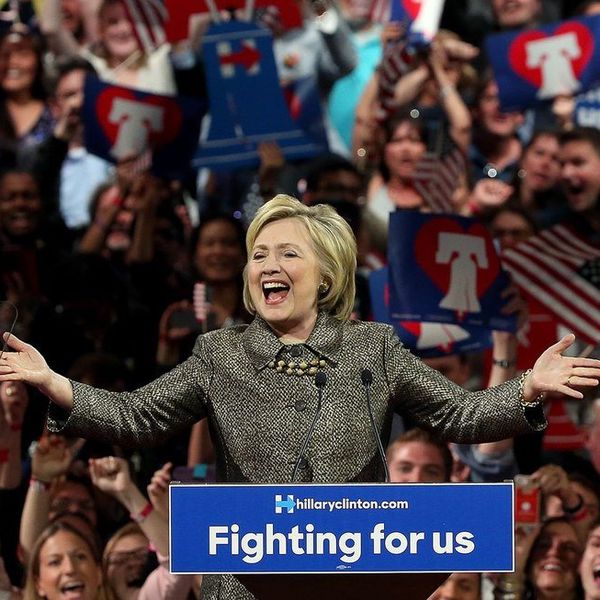Whether or not you watched the third ― and, thankfully, final, presidential debate Wednesday night, you've probably heard the news: Republican Candidate Donald Trump said something many things that were offensive ― again. Shocking, I know. But as horrible as that is, this is nothing new, and this post is not about that. Don't get me wrong ― I was very offended by Trump's comments about a specific faction of illegal immigrants, abortion, and women. But oddly enough, that wasn't the most upsetting part of my evening.
I know, right? You're probably wondering how anything else could have possibly been worse than hearing that. Well, surprisingly, the most offensive thing of the night came when CNN panelist, Jeffrey Lord rejected fellow panelist, Patti Solis Doyle's offense to Trump's "bad hombres" comment.
When Doyle said that Trump's comment was "offensive to Hispanics and Mexicans" a Trump supporter named Lord replied with, "I've never heard that compared to the N-word!" and "That's just an excuse to be politically correct."
When Lord said this, he absolved the validation of Doyle's feelings. He assessed the comment, realized it did not do any bodily or mental harm to his own person, and assumed that this, then, must be the case for everyone ― or at least, it should be the case of everyone else. He even went s far to minimize the damage done by Trump's words by comparing it to the "N-word," and saying that Trump's wording didn't matter because it is "the same as if he had just said 'bad dudes'."
Firstly, if this were the case, why did Trump not just say "bad dudes?" His use of the phrase "bad hombres" is offensive because he used it to denote a certain group in a broader label known as "illegal immigrants." By using "bad hombres," Trump assigned a face ― and what's more, an entire ethnicity ― to the term "illegal immigrants." That's what makes it offensive.
Secondly, this is a classic case of white privilege and mansplaining. Why did Lord feel that it was okay for him to interrupt Doyle with his opinion as to why it was not offensive to him ― a white male ― to hear a racial slur directed toward another community? This dismissed the actual issue and allowed Lord to say, "This doesn't effect me, and therefore it must not be offensive."
(Yeah. This is the kind of douche you sound like when you try to tell someone else how they should feel about something.)
We have to start taking ownership of our actions and realizing when they have hurt someone else. This is not an "excuse to be politically correct" or take part in "an easily offended culture." This is the basic decency we owe each other as fellow human beings to recognize when our intentions have deviated from our impactions.
But it's not enough to know that you've offended somebody. As kindergarteners, we learn that we should say "sorry" to someone when we hurt their feelings ― but somewhere between nap time and puberty, we get the idea that you don't have to really apologize if you don't think you did something wrong.
(This is more of a Trump apology ― not a real one, just so you know.)
We, as human beings, are connected and validated through our feelings. But though we all have the same feelings, unfortunately, we do not all feel things or react the same way as another person. Our difference in sensitivity levels is not an excuse to brush off someone else's reaction to something that was said or done.
In the words of another CNN panelist, Van Jones, had this to say in defense of Doyle's feelings: "You can't dictate what a person can or cannot be offended by. If I say or do something to you that you find offensive, it's my job in the name of civility to listen to you."
























